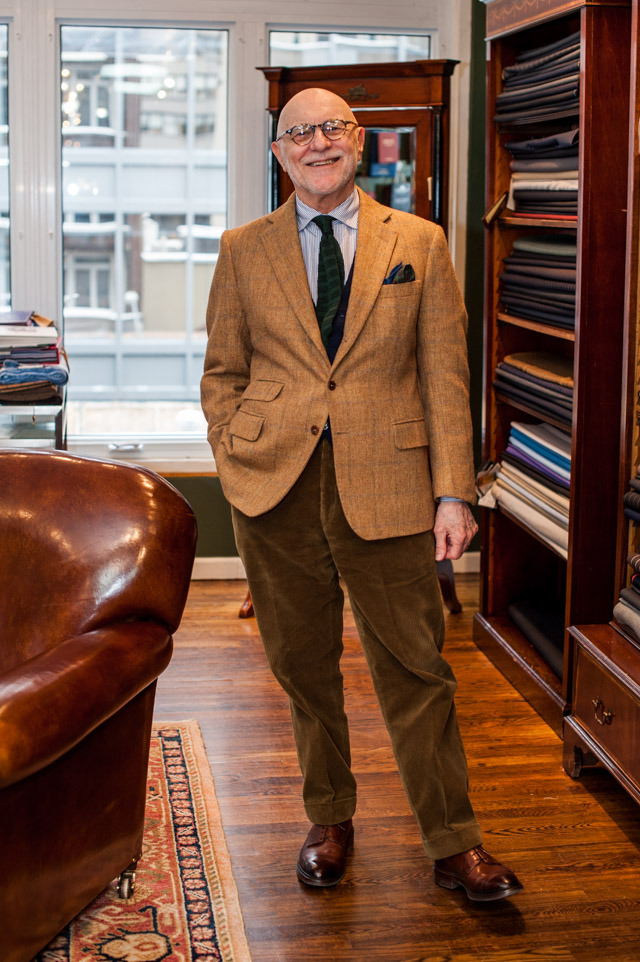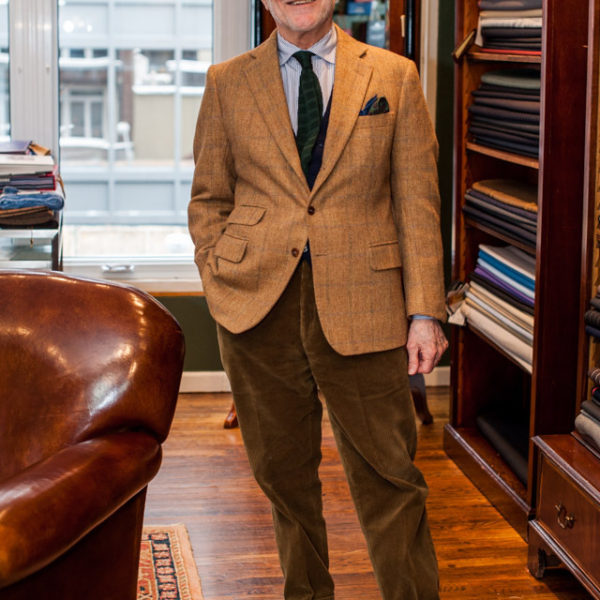
Not sure how we missed this, but Articles of Style ran a feature on our friend Bruce Boyer earlier this year. Bruce, by the way, has a new book coming out this fall, and given that he’s written some of our favorite titles, we’re sure this one will be great as well. We’ll do a review come late-August, but in the meantime, you can head over to Articles of Style to read Bruce’s thoughts on a variety of subjects. A sampling:
- Personal Style: “I was lucky to have had an incredibly tolerant mother, who allowed me to wear clothes of which she didn’t approve but tolerated. When I was a young man, a very young man (12 -16), I tried everything: zoot suits, rebel style , California casual, and everything else that was going on in the 50s. So I experimented a lot with “looks”. And that’s important: a young person should experiment, find out what works and what doesn’t. As you grow and discover who you are, you fine-tune your appearance to accommodate your personality and lifestyle.”
- Fashion Democracy: “Beginning after World War II, the way fashion works changed radically. From the historic initiation of fashion to almost mid-20th century, fashion started at the top of the social scale and worked its way down to the bottom. But starting in 1950 or so, fashion began to be determined from the bottom up. Designers, particularly from the late 60s on, began to look to the street for inspiration. The great American icons of fashion for men — jeans, t-shirts, ‘active’ footwear, barn jackets, and the rest — all come from the street, the playing field, the war zone, and parole gear, rather than from the wealthy, the aristocratic and royal. It’s largely a democratic movement, with help from technology and a relatively stable economy.”
- Buying Quality: “My grandfather, an ordinary blue collar working man, had one good ready-made suit and one sports jacket, one good pair of shoes, perhaps four or five dress shirts and as many ties. Today it seems that many have steaming piles of cheap clothing, but no good clothes. Even many luxury brands are no longer concerned with quality. I think the reason is that, in today’s world, we’ve lost both the sense of occasion and a sense of quality. I do find this a bit frightening because I think it may mean we no longer think about the future. Those who are concerned for the ecology have been saying this for years now, and I’m worried that it may be true. We’re living too much for today, ‘getting and spending’ as the poet William Wordsworth put it. And on an even deeper level, it means we may have no sense of faith in ourselves anymore.”
